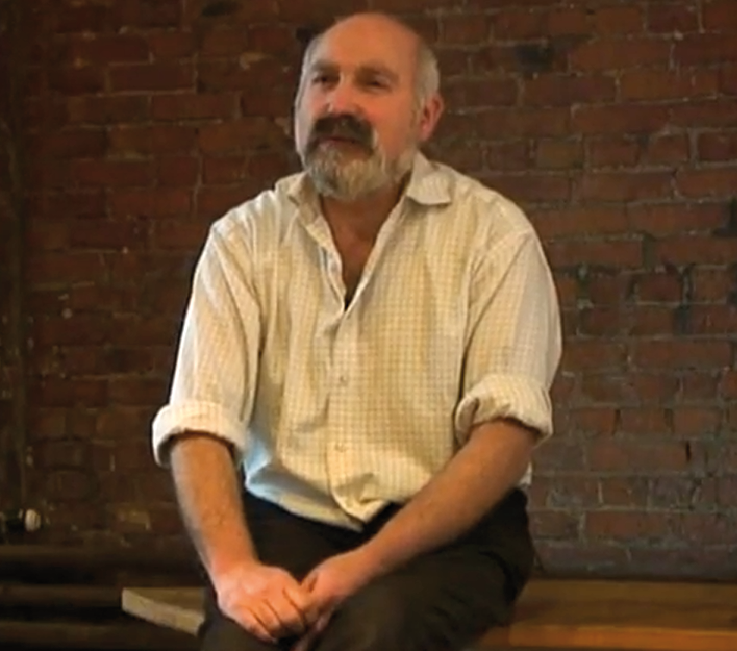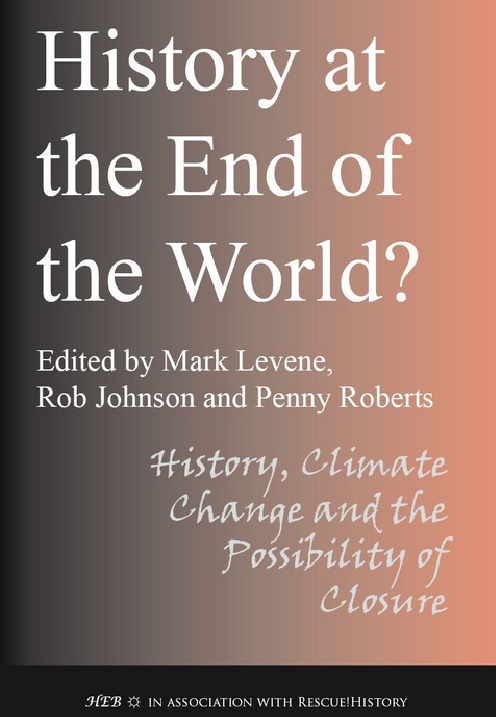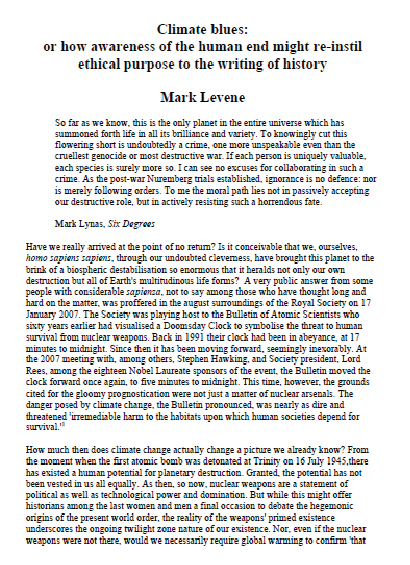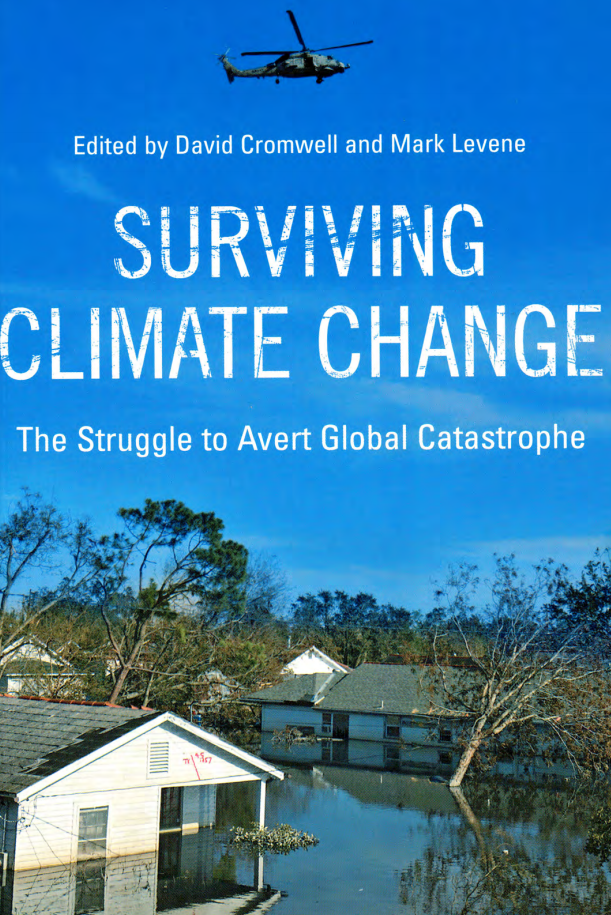OK, Aubrey, and good luck!
Dr Mark Levene,
The Forum for the Study of Crisis in the 21st Century (Crisis Forum), and University of SouthamptonDr Mark Levene - Southampton University
Co Founder of the Crisis CentreThe debate around climate change becomes more fractious and fragmented.
So considerations of 'who do you trust' arise. Mark Levene is one of the people that you do.Within the contested 'appeals to reason' that climate change debate has triggered,
Mark's measured consideration of the full-context, make his a credible and trustworthy voice.
What is equally significant about this historically-grounded eschatological resource is the manner in which it transcends the argument for purely and simply merging history with natural history. Ideas about the end appear to be an outcome of civilisational development from the ancient Near East, yet have endured when all the civilisations out of which the ideas emanated have long gone the way of Nineveh. Why? Fundamentally, I suspect, because they are expressive of a deep consciousness about what is 'wrong' with civilisation and what needs to be put right to set humanity on its path to reconciliation with itself and Mother Earth. The ideas carry within them a great list of things which would need to be done by way of environmental and social justice to arrive at such a destination. In our own time, the climate campaigner, Aubrey Meyer has exquisitely captured the essence of this purposefulness in his entirely scientific proposition for a route - Contraction and Convergence - by which all humankind might arrive at an equal carbon entitlement which would also provide a practical framework within which yearly, incremental carbon reduction could be brought to safe-limits. While mitigation of dangerous climate change - and within an actually, normative timeordered process - has been the project's ostensible aim, underlying it is an ethical endgoal suffused with compassion and loving-kindness for all living things. Yet the reason why Meyer's proposition has been, and remains still-born is not on account of its practicality, but, much more pointedly, because its implementation would undercut, indeed starve, the sources of hegemonic worldly power. One can almost speak of Contraction and Convergence in the past tense now because the chronological time has come and gone in which the international system might have grasped mitigation as its urgent priority. Looking back from a further vantage point, we are unlikely to be surprised by the system's failure. Indeed, in a sense there was no failure because it had nowhere else to go other than 'business as usual'. What will be truly disastrous for humankind, however, is if - as a consequence of the system's impending climate-precipitated collapse - the rest of us give way to despair, anomie and even greater estrangement from each other.
From 'Climate blues: or how awareness of the human end might re-instil ethical purpose to the writing of history' - Mark Levene
Aubrey Meyer's principle of Contraction and Convergence.
In seeking a route to an internationally negotiated reduction of carbon emissions to a scientifically-determined stable level founded on the principle of per capita equity, Meyer envisages a timeline in which the necessary global 'convergence' would be dependent on explicit rates of deep emissions (contraction) made by the high carbon-emitting countries. In other words, Meyer, in considering humanity's predicament in its totality, implicitly highlights the historical imbalance between the powerful, industrialised West and the subordinate South. This, he argues, might only be comprehensively reconciled by a UN adjudicated process in which the West's annually diminishing entitlement to pollute would be traded in favour of the poorest (lowest carbon-emitting) countries' right to develop: that is until carbon equity- 'convergence' - is reached. The problem is one of time: and we are running out of it, fast. The science is clear that without radical deceleration of greenhouse gas emissions we are set on course for planetary disaster. Yet, for all the reams of information we now possess on climate change, the sort of social transformation necessary to meet the ch allenge hardly seems achievable on the basis of our current state of consciousness. To arrive there would seem to demand something else: 'some utopian leap, some human rebirth, from Mystery to renewed imaginative life.' The words are that of social historian and activist, E.P. Thompson, not long before his death, writing of that great visionary, William Blake, who broke all the rules to imagine a new post-apocalyptic age for humankind. Should we now feel enjoined to think with Blake, with Thompson, with Meyer and all the other modern-and ancient- prophets about our full ethical potential in the world?
History at the End of the World Mark Levene
What is equally significant about this historically-grounded eschatological resource is the manner in which it transcends the argument for purely and simply merging history with natural history. Ideas about the end appear to be an outcome of civilisational development from the ancient Near East, yet have endured when all the civilisations out of which the ideas emanated have long gone the way of Nineveh. Why ?Fundamentally, I suspect, because they are expressive of a deep consciousness about what is 'wrong' with civilisation and what needs to be put right to set humanity on its path to reconciliation with itself and Mother Earth. The ideas carry within them a great list of things which would need to be done by way of environmental and social justice to arrive at such a destination.
In our own time, the climate campaigner, Aubrey Meyer has exquisitely captured the essence of this purposefulness in his entirely scientific proposition for a route - Contraction and Convergence - by which all humankind might arrive at an equal carbon entitlement which would also provide a practical framework within which yearly, incremental carbon reduction could be brought to safe-limits.
While mitigation of dangerous climate change - and within an actually, normative time-ordered process - has been the project's ostensible aim, underlying it is an ethical end-goal suffused with compassion and loving-kindness for all living things. Yet the reason why Meyer's proposition has been, and remains still-born is not on account of its practicality, but, much more pointedly, because its implementation would undercut, indeed starve, the sources of hegemonic worldly power.
Climate blues: or how awareness of the human end might re-instil ethical purpose to the writing of history
Mark Levene
"Climate change is a pressing reality. From hurricane Katrina to melting polar ice, and from mass extinctions to increased threats to food and water security, the link between corporate globalization and planetary blowback is becoming all too evident. Governments and business keep reassuring the public they are going to fix the problem. An epochal change is called for in the way we all engage with the climate crisis. Key to that change is Aubrey Meyer's proposed "Contraction and Convergence" framework for limiting global carbon emissions, which he outlines in this book."
"Surviving Climate Change"
Editors Mark Levene & David Cromwell
Southampton University Crisis ForumTO WHOM IT MAY CONCERN
For time and motion reasons this has to be very brief. So let me state it succinctly. If I have repeatedly stated to those that do not know him or his work that Aubrey Meyer is probably the most important person on the planet, I am not being flippant.
Contraction and Convergence represents the joining of science and ethics, prescience and social justice. It is fundamentally about the reconciliation of the human condition set against the background of ever accelerating anthropogenic climate change. If this may sound high-falutin' the reality is that C&C is not only utterly grounded in the reality of the science and economics of the here and now but is in its essence graspable by everybody.
While governments and their advisors seek complex ways of avoiding what is at stake, Aubrey has got to the heart of the matter. This is thus why his argument is also the central pillar and chapter of Cromwell and Levene eds. Surviving Climate Change, The Struggle to Avert Global Catastrophe (Pluto Press, 2007).
In short, I commend Aubrey and his work which has been pursued remarkably, tenaciously, singularly for the best part of two decades, and essentially with little or no financial support. It is time that the 'value' of Aubrey's efforts were properly recognised. Esme Fairbairn would be doing more than Aubrey a great service by offering its support to GCl.
As with the 'Berlin Wall', the 'Climate-Firewall' can yet come down.
'Climate-detente' possible
at COP-17 with negotiated rates of C&C.
Why not Follow @aubreygci
Why not
Tweet




